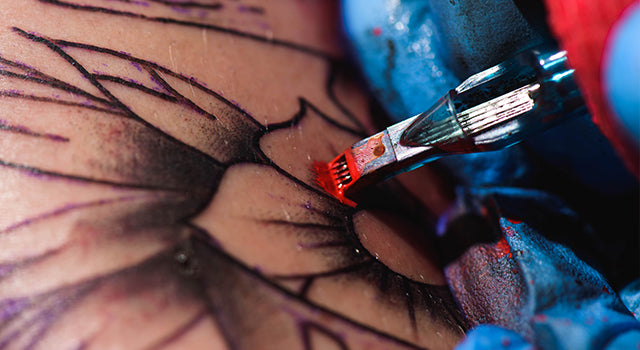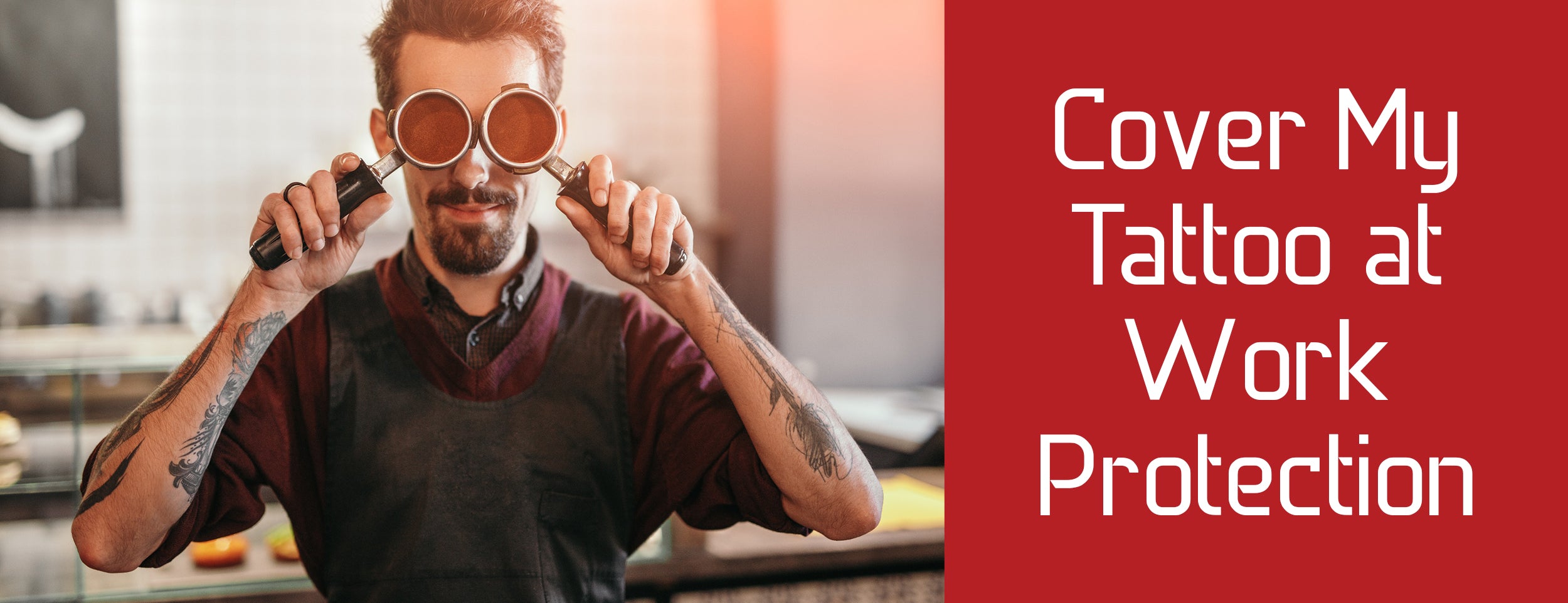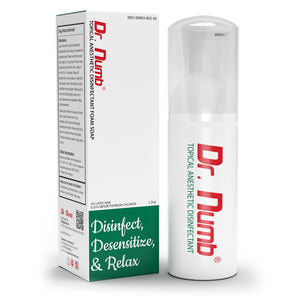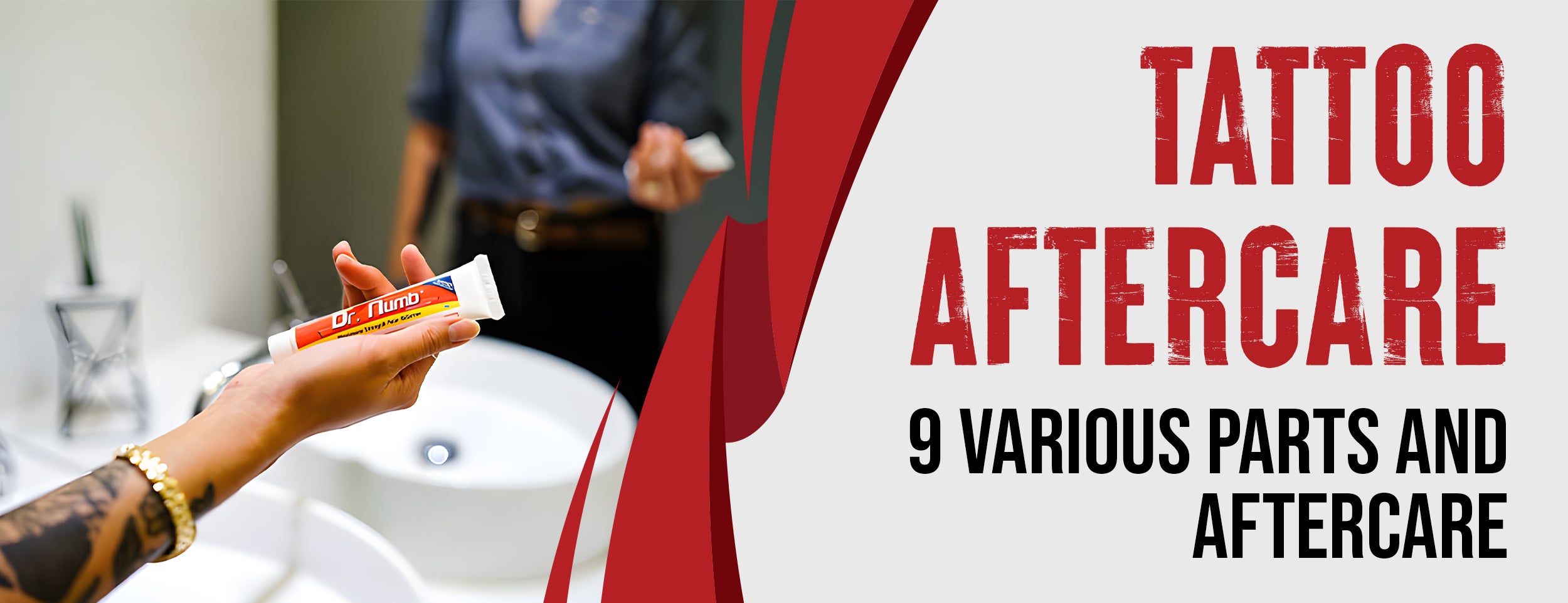You may not need to cover your tattoo if you work in a clean environment, like an office. If it gets irritated by clothing, consider wrapping it with sterile, dry gauze after consulting your tattoo artist.
While tattoos can be artful to showcase your style, they may not be welcomed in specific workplaces. So, do you have to cover your tattoo at work? The answer may vary based on factors such as industry, company policy, and the location of your tattoo.
This blog post will explore the factors influencing the need to cover tattoos, the benefits and challenges of hiding them, and strategies for protecting them at work.
Do I Have to Cover My Tattoo at Work: 5 Options Explained

As social norms and attitudes towards tattoos have shifted, it's no surprise that some employees may question if they need to cover their tattoos while at work. While some employers may have strict policies regarding visible tattoos, others may be more lenient. Before deciding on whether to cover your tattoos at work, consider the following options:
Clothing Choices
- Wearing long-sleeved shirts, blouses, or jackets can hide tattoos on the arms or chest.
- Choosing pants rather than shorts or skirts can also conceal leg tattoos.
Jewelry and Accessories
- Necklaces or scarves can cover tattoos on the neck or chest.
- Bracelets or watches can be worn to cover wrist tattoos.
Makeup and Concealers
- Products such as tattoo concealers, foundation, or concealer can cover smaller neck, hands, or face tattoos.
- It's important to note that some makeup products may transfer onto clothing or fade throughout the day, so doing a patch test first is essential.
Tattoo Removal
- For those considering tattoo removal, it's important to note that the process can be costly and painful and may not altogether remove the tattoo.
- Laser removal may take multiple sessions and require time off work for healing.

Seeking Advice
- If you need clarification about your company's tattoo policies, it's best to consult with HR or a trusted colleague for guidance.
- It's important to remember that tattoos are a personal expression and choice, but in a professional setting, it's essential to consider the company's culture and policies.
Cover My Tattoo at Work: 4 Factors Influencing
We will explore the key factors that can impact the requirement to cover your tattoo, helping you to make an informed decision about how to approach your tattoo in the workplace.
Location of Your Tattoo
- If your tattoo is in a highly visible area like your face or neck, you may need to cover it up to avoid distracting others.
- You may have more flexibility if it's in a place that's easy to cover, like your back or leg.
- Check your workplace's dress code and ask your employer about their expectations.
Industry You Work in
- Some industries, like fashion, are more accepting of tattoos, while others, like healthcare, have stricter dress codes.
- Research the companies you're interested in to understand their tattoo policies.
Nature of Your Job

- If you work in a role where you interact with customers, you may need to cover up your tattoo to avoid offending them.
- You may have more choices in a role where your tattoo is less visible, like in an office.
- Be sure to consider your responsibilities and employer's expectations.
Customer Expectations
- Sometimes, your customer's preferences or expectations may influence your cover-up decision.
- It may be best to cover up if they're more conservative to avoid making them uncomfortable.
- If they're more liberal, you may have more choice in displaying your tattoo.
Tattoo Coverage at Work: The Benefits
When deciding to flaunt tattoos at work, it's essential to consider your tattoo’s impact on your professional image and credibility. We'll explore the benefits of covering your tattoos at work:
Increasing Professionalism and Credibility
One of the primary advantages of covering your tattoos is the increased professionalism and credibility it may lend you. Here are some points to consider:
- Visible tattoos can significantly impact a candidate's chances of getting hired, according to a 2018 survey. Covering your tattoos increases your likelihood of being hired or promoted.
- In a conservative work environment, visible tattoos may be viewed as unprofessional. By covering them, you'll be able to fit in better with the company culture and dress code requirements.
- Covering your tattoos can demonstrate your ability to be adaptable and flexible, which are highly valued traits in the workplace.
Avoiding Negative Stigmas
Another benefit to covering tattoos at work is avoiding negative stigmas that may come with visible tattoos. Consider these points:
- Visible tattoos may be associated with negative perceptions, such as a lack of professionalism or poor decision-making.
- Certain tattoos may be associated with specific subcultures, leading to judgments or negative assumptions about your beliefs or values.
- Covering your tattoos can eliminate these biases and allow others to focus on your work performance and skills.

Promoting Workplace Cohesion
Lastly, covering your tattoos at work can help promote workplace cohesion. Consider these points:
- Depending on the nature of your tattoo, coworkers or clients may feel uncomfortable or unwilling to interact with you. This can put a damper on collaboration and coworker relationships.
- By covering your tattoo, you're creating a more inclusive work environment. Covering them can eliminate any potential tension or discomfort that may otherwise exist.
- Encouraging coworkers to cover their tattoos can create a sense of unity and cohesion. When everyone feels comfortable and accepted, productivity and morale often increase.
Tattoo Coverage at Work: Challenges of Covering
We'll explore the challenges of covering up tattoos at work and offer suggestions for managing the process effectively.
Ensuring Comfortable and Practical Cover-Ups
Covering up a tattoo can be challenging, and it requires careful consideration to ensure that the cover-up is both comfortable and practical. Here are some tips to help you with the process:
- Consider Cover-Up Makeup: Cover-up makeup is an excellent option for concealing tattoos, but choose a product that is both long-lasting and matches your skin tone.
- Utilize Bandages or Compression Sleeves: For larger tattoos, a compression sleeve or bandage can be a great option for hiding them while preventing irritation and inflammation.
Wearing a Cover-up during the Day
Once you’ve successfully covered up your tattoo, the next step is to maintain it throughout the day. Listed below are some tips to keep your cover-up in place:
- Use a Setting Spray: A setting spray will help to keep your makeup or cover-up in place throughout the day and minimize smudging or running.
- Carry Touch-Up Products: Carry touch-up products, such as concealer, setting powder, and makeup remover wipes.
- Avoid Touching the Area: Keep your hands away from the area to avoid messing up the cover-up and minimize any irritation or inflammation that may occur.
- Remove Your Cover-Up at the End of the Day: Once you are home, remove the cover-up to allow your skin to breathe. This also gives you time to check for irritation or inflammation and adjust your covering strategy accordingly.
Cover My Tattoo at Work: Protection

If you enjoy expressing yourself with tattoos, you may wonder if you need to cover them up when you go to work. A few options are available to help protect your tattoos while you're on the clock.
Reasons for Protecting Tattoos
There are several reasons why you should take steps to protect your tattoos when you're at work. These reasons include:
- Infection Prevention: Infection risk in environments like hospitals necessitates covering tattoos. This prevents potential ink contamination by harmful substances, minimizing the risk of infection.
- Maintaining Vibrant Colors: Keep your bright, bold tattoo looking vibrant for longer by protecting it from sunlight. Fading over time is natural, but covering it up helps preserve its vibrancy.
- Preventing Irritation and Swelling: Protect your tattoos from harmful substances to avoid irritation or swelling that may damage them while working in chemical-exposed areas.

Strategies for Protecting Tattoos While Working
Now that we've discussed why you might want to protect your tattoos at work, let's look at some strategies you can use.
- Protective Bandaging: In the initial stages of healing, use a sterile, breathable bandage to protect the tattoo from bacteria and irritants.
- Proper Moisturization and Sun Protection: Keeping your skin moisturized and protected from the sun can help preserve the vibrancy of your tattoos. Use a good quality moisturizer regularly and wear sunscreen outside for extended periods.
- Staying Hydrated: Drinking plenty of water throughout the day can help keep your skin healthy and hydrated, which can help preserve the brightness and clarity of your tattoos.
Conclusion
Deciding whether or not to cover a tattoo is a personal decision. Factors such as company policy, the location of your tattoo, and the nature of your job may influence your decision. However, regardless of your decision, it's essential to remember the importance of workplace professionalism and respect for your employer's policies.
Finding a solution that works best for you and your career goals is vital when navigating tattoos at work. So, whether you decide to keep your tattoo visible or covered, make sure that it's a decision you're comfortable with that helps you put your best foot forward in your career.













![Antibiotics and Tattoos: 3 Risks and 3 Effects [with 4 Precautions]](http://drnumb.com/cdn/shop/articles/Can_You_Get_Tattooed_On_Antibiotics__3_Risks_and_3_Effects_4_Precautions.jpg?v=1714128292)

